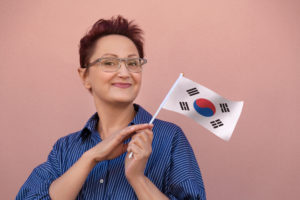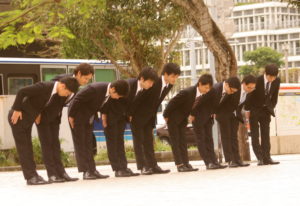The Fastest Way to Achieve Conversational Korean
Language is primarily a spoken form of communication. You need to talk to people using your target language to practice your skills and eventually reach fluency. As a Korean language learner who dreams of speaking like a local, your goal should be to master conversational fluency. But what does that mean exactly? How do you achieve it? And how long will it take you?
Use these tips and advice to fast-track your conversational fluency in Korean. Enhance your vocabulary with high-frequency phrases, and learn about the importance of learning the right expressions. Reach fluency, make friends with native speakers, and improve your life with this guide to becoming flawlessly conversational in Korean.
What’s the Difference Between Fluency and Proficiency?
Every language learner wants to become fluent or proficient. But those two concepts aren’t the same. Here’s the difference:
- Fluency is the ability to speak smoothly and comfortably.
- Proficiency is knowing everything there is to know about the language structure, grammar, and vocabulary.
You can be fluent without proficiency. Sure, your Korean will be grammatically incorrect, but as long as native speakers understand most of what you say, you’ve achieved conversational fluency.
Why Most Language Learners Struggle with Speaking
It’s also important to note that you can also become proficient without fluency. For example, if you give in to language learning anxiety and don’t practice speaking, then you’ll be an expert in Korean without the ability to communicate.
Just ask anyone who’s taken years of formal foreign language education only to struggle with a basic conversation in their target language. Yeah…we’ve all been there, sadly.
Your primary goal should always be fluency. Grammar can come later. If you want to communicate with native Korean speakers, you need to achieve conversational fluency. Conversational fluency in Korean simply means that you can keep up with the conversation.
Even if you’re missing some vocabulary or you’re unsure about verb conjugations, you can still exchange ideas and information fluently in Korean. And that’s the most useful and achievable goal you can have when you start learning Korean.

How Long Does It Take to Learn a Language?
How long it takes for you to learn a language depends on a number of factors: what resources you’re using, what your native language is, and how closely it’s related to your target language. Additionally, the type of learner you are also has an impact on how long it will take you to speak any language at a conversational level.
However, you can reach conversational fluency in Korean very quickly. All you need is a set of high-frequency words and phrases and a little bit of bravery. Remember: pretty much 80% of everyday speech comes from around 20% of a language’s total vocabulary.
So, if you want to achieve conversational fluency, you just need to master around 20% of the language to get you there. That’s why it’s important to realize that fluency isn’t about how many words you know. It’s about knowing the right words and phrases.
What Is Conversational Fluency?
Before you begin to learn Korean, consider the following suggestions. Setting expectations is important. Becoming fluent in Korean does not mean that you will speak exactly like a native speaker. Truthfully, there are very few native speakers that can speak Korean perfectly. Instead of aiming to speak “perfect” Korean, focus on speaking Korean with comfort and without hesitation.
If you’re traveling, you want to learn enough Korean that you are able to navigate the place with limited help. One way to blend in with native speakers is to learn just enough Korean to have simple conversations. This means that you should continuously practice vocabulary. When traveling, if you continue to use the conversational words you know, by the end of your trip you will be speaking like one of the locals.
With that being said, the key to becoming fluent in Korean is to become fluent with the basic vocabulary. The goal is to understand the notions of grammar and how to correctly say phrases. Conversational fluency in Korean means being comfortable speaking the language. And fluency can be equated to the ability to refrain from searching for the words you to say during a conversation. If you can do both with relative ease, then it’s a possible indicator that you are becoming more fluent in the language.
Sometimes, insecurities can impact the way you speak another language. You may be worried that you will offend someone or use the wrong vocabulary word. Some important advice to follow is to never let your insecurities overshadow your skills. Work on your speaking skills daily. Specifically, focus on practical skills, words, and phrases. Learn and master the words that you’ll most commonly use on a daily basis.

5 Phrases to Start a Conversation in Korean
The following phrases are very commonly used, so they’re extremely useful vocabulary to have. Fortunately, they’re easy to remember. They’re also perfect ice breakers in social situations. That makes it to talk to native Korean speakers and build friendships. Give them a go!
1. 한국어 할 수 있어요? (Hangugeo hal su isseoyo?) — Do you speak Korean?
As a starter, you can use this phrase to learn if the person you are talking to speaks Korean. It’s also a great way to inform native speakers that you would like to talk to them in Korean.
2. 어떻게 지내세요? (Eotteoke jinaeseyo?) — How are you?
This phrase works in social settings when you are casually talking to people. It’s a great way to begin a casual conversation. If you are in a formal setting, don’t use this phrase.
3. 무슨 뜻이에요? (Museun tteusieyo?) — What does this mean?
If you are traveling through South Korea and you see something you don’t recognize, this phrase can help you. You can use this phrase for both Korean words and physical things.
4. 이름이 뭐예요? (Ireumi mwoyeyo?) — What’s your name?
Naturally, after asking someone how they are doing you should also ask them their name. Most people recommend that all Korean learners be able to exchange names when they start learning Korean. It’s a great way to break the ice!
5. 어디 출신이세요? (Eodi chulsiniseyo?) — Where are you from?
In places like South Korea, specifically Seoul there are many ethnicities. This phrase is fantastic to ask for a new or old friend. It may surprise you where people are from. And who knows where the conversation will go?
Practice Saying Hello in Korean
Now that you’ve learned some key phrases, you can get more practice with conversational Korean by learning how to say hello. The video below will teach you how to say hello. Check it out:
Practice Korean Conversations
The only way to get perfect at Korean conversations is with a lot of practice. Just like anything you learn or do, it gets easier and easier the more you do it. And when it comes to language learning, the more practice you have, the better you’ll be at speaking. Use these tips and advice to become fluent in Korean conversations fast:
- Confidence is key: Don’t be discouraged if you don’t know everything. Most Korean native speakers make plenty of grammar mistakes too. And since Korean is your second language, nobody will judge you if you mess up. Be confident, and speak as much as you can.
- Use filler words: Filler words and sentence connectors are natural parts of speech patterns. “Umm”, “ok”, and “well” are just a few examples in English. Find Korean filler words, and sprinkle them into your conversations.
- Practice every day: Even if you’re just talking to yourself in the shower, every Korean word you pronounce will get you closer to conversational fluency. Don’t forget to practice every day.
- Talk to a friend: Connecting to Korean native speakers isn’t easy. But, there are plenty of language exchange apps and programs where you can make Korean friends. They can correct your pronunciation, and guide you to fluency faster.
- Find a study partner: If you feel like your motivation is fading, try studying with a study partner. You can exchange exercises and practice together.
- Record your conversations: This is a great trick if you want to get perfect at Korean conversations. Record your conversations with Korean natives (or just yourself), and listen back to the tape. Notice what mistakes you’ve made, and try to correct yourself.
- Watch Korean dramas: Korean dramas are exciting, and a great language-learning resource. The dialogues in these TV shows feature authentic Korean, so you’ll see exactly how Korean people speak to each other.

3 Steps to Perfect Korean Pronunciation
Many language learners experience anxiety over their accents and pronunciation. While your accent will be hard to manage (though not impossible), you can always try to pronounce Korean words perfectly. Again, it takes practice. To help you on your way, follow these three steps to perfect your Korean pronunciation in conversations:
1. Listen Intently
Spend a considerable amount of time just listening to the language. Gauge the rhythm, intonations, and emotions behind everyday conversations. You can listen to authentic Korean in Korean dramas, podcasts, or even Kpop music.
2. Start Speaking ASAP
Practice makes perfect. Try to pronounce the words to the best of your abilities. The more you force yourself to speak, the more comfortable you’ll be with the sounds. And that’s how real Korean fluency develops.
3. Ask a Native Speaker for Feedback
When you’re speaking to a native Korean, ask them to correct you. Take their advice to heart, as they’ll surely give insight you can’t find elsewhere. Also, don’t be afraid to talk to locals or native speakers. They’ll be flattered at your efforts to learn the language.
Reach Conversational Fluency in Korean
Becoming fluent in Korean may be easier than you think. Set goals, stay motivated, and continue to practice the language. But, you also need a trustworthy language learning method. One that can guide your studies and prepare you for the real world. And that’s exactly what OptiLingo offers.
OptiLingo is a convenient language learning app that gives you common words and phrases. That means you’ll learn how the locals speak. Best of all, it gets you TALKING (not typing) from your first lesson so you’re prepared for real-life conversations. Build your confidence and your Korean conversation skills from the comfort of your home.
Discover how effective the app is when you try OptiLingo today!







